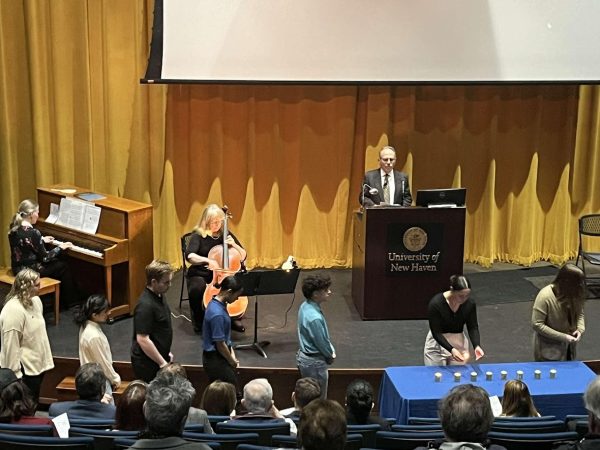OIT Introduces Education on Phishing
Due to increased encounters with email phishing on the University of New Haven campus, the Office of Information Technology (OIT) is now providing students and faculty with a little help. Using videos from LinkedIn Learning, an online branch of the social media platform, OIT hopes to give “basic training on email.”
“The more people become aware, the better we’ll do to reduce this,” said Vincent Mangiacapra, associate vice president for technology and C.I.O.
Email phishing is a way for people to access another’s credentials without the need for “hacking.” Once your password is acquired by someone else through either an email link, or even purchased on the dark web, your accounts, and personal information can be accessed. The worst part? Prevention isn’t always so easy.
“There’s nothing in place to prevent this because it’s a valid login,” said Greg Bartholomew, director of networking/systems operations.
In order to curb the phishing trend, Bartholomew and Mangiacapra believe that “the best thing is education.”
“We’re trying to do our best to reduce phishing,” said Mangiacapra. “But we want to train the end user, if you don’t recognize the sender, don’t click on the link.”
Additional tips include verifying the email address to the name in the email and making sure to change your password if you feel you might have been affected.
“Until someone gets their identity out there, it’s a tough lesson to learn,” said Bartholomew.
OIT is also looking into tightening the cybersecurity of students and faculty as well. One option they have considered is multi-factor verification when logging into your email, but what the other factor will be has yet to be decided. They’re also using a system of metrics in order to determine how many people continue to fall for phishing scams by using fake email accounts targeted to test users. In one test, 20 percent of faculty members failed and opened links in the fraudulent emails.
OIT is planning an event for faculty to learn more about email security. But so far there is no plan for students.

Everett Bishop is a senior at the University of New Haven and is student life editor for The Charger Bulletin. He is double majoring in communications...










